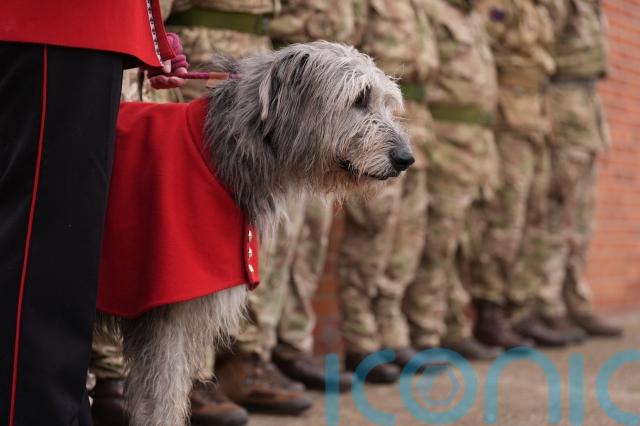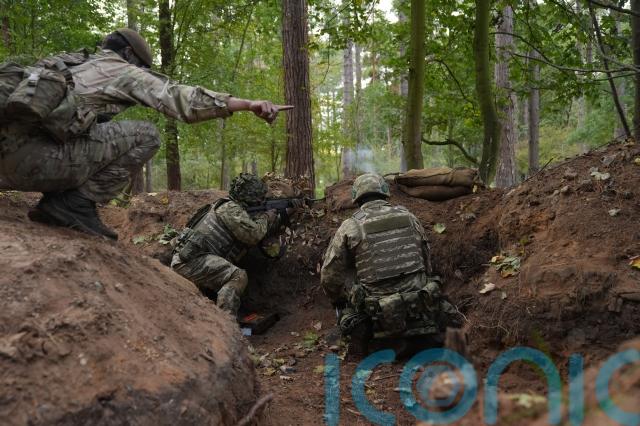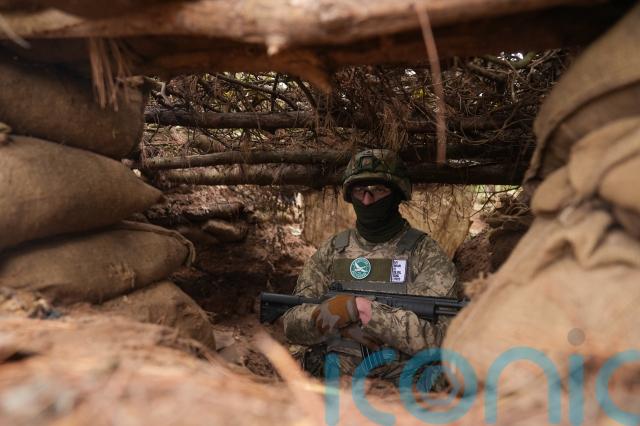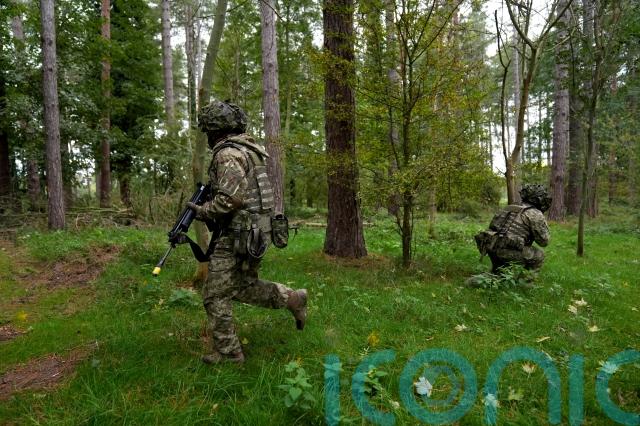
A Ukrainian soldier who is among more than 60,000 to have received military training in the UK said ahead of a departure parade that “everybody needs to understand that the war can knock on everyone’s door”.
The soldier, who gave his name only as Dmytro, said: “It’s really difficult to wake up at night, to wake up your kids because the enemy is attacking even the furthest areas of Ukraine.
“Everybody needs to understand that the war can knock on everyone’s door, on everyone’s home, and that we need to get together to eliminate the efforts of the enemy so he wouldn’t spread around the world.”
The training programme, called Operation Interflex, began in June 2022 following the outbreak of war in Ukraine in February 2022.

It was initially a basic infantry training programme to turn civilian volunteers into soldiers in five weeks, with a target to train 10,000 Ukrainians in six months.
British Army personnel delivered the training at the outset and were quickly joined by international forces.
A total of 13 partner nations have contributed to the training over the last three years, and Operation Interflex has been extended until the end of 2026.
More than 60,000 individuals have been trained to date.

Dmytro had his face covered to protect his identity as he spoke ahead of a departure parade at a British Army camp in the east of England on Wednesday, following the completion of an instructor training course with the Irish Guards.
The ceremony, attended by Seamus the Irish wolfhound, the regimental mascot of the Irish Guards, saw hugs and handshakes between the Ukrainians and those who helped deliver their training.
There was music from an Irish Guards piper and a speech from a padre before the soldiers left the site in coaches to return to Ukraine.
The vehicles passed through a guard of honour as they exited the site.
Another cohort, completing a longer leadership course, continued training later in the day with a trench warfare exercise.
Dmytro, 30, who worked in social services before the Russian invasion, answered questions with the help of a Ukrainian translator.

He said that he had “been in combat actions and I’ve been taking part in defending the sovereignty of Ukraine in the Donetsk region” but that much of it was “confidential information”.
“During my service I fulfilled all the responsibilities that have been put on my shoulders,” he said.
“After several injuries, after rehabilitation I can’t go back to the front line so now I can only teach my comrades.”
He said he had completed an instructor’s course and he would work at a training centre “teaching less experienced soldiers to fulfil their responsibilities on the front line”.
“The support the UK provides is extremely important and in the situation we are right now we are very grateful for every support,” he said.
Colonel Andy Boardman, who is the commanding officer of Operation Interflex, said the programme has “evolved quite a lot” and there is now instructor and tactical leadership training.

“I think the impact is already being seen in Ukraine by the number of people that we’ve trained,” he said.
“We’ve trained more than 60,000 individuals now which is a huge addition to the Ukrainian military.”
He said that the training has evolved over time “to keep up to date with the battlefield which is pretty fast-paced”.
“It’s quite a fluid programme and we add to it as and when we feel necessary,” he said.
Col Boardman said the “morale of the Ukrainians is strikingly high”.
“As we come to the end of a course… you can see sometimes a sense of apprehension perhaps,” he added.
“They know they’ve finished their training now, they’re going back to the front line, which I think is entirely natural.”
Sergeant Dodds, of the Irish Guards and from Belfast, who is among those delivering the training, said: “We give them plenty of tools for their tool bag going back to Ukraine.”
He said they “try and do a lot with drones in order to make things more realistic”.
Subscribe or register today to discover more from DonegalLive.ie
Buy the e-paper of the Donegal Democrat, Donegal People's Press, Donegal Post and Inish Times here for instant access to Donegal's premier news titles.
Keep up with the latest news from Donegal with our daily newsletter featuring the most important stories of the day delivered to your inbox every evening at 5pm.